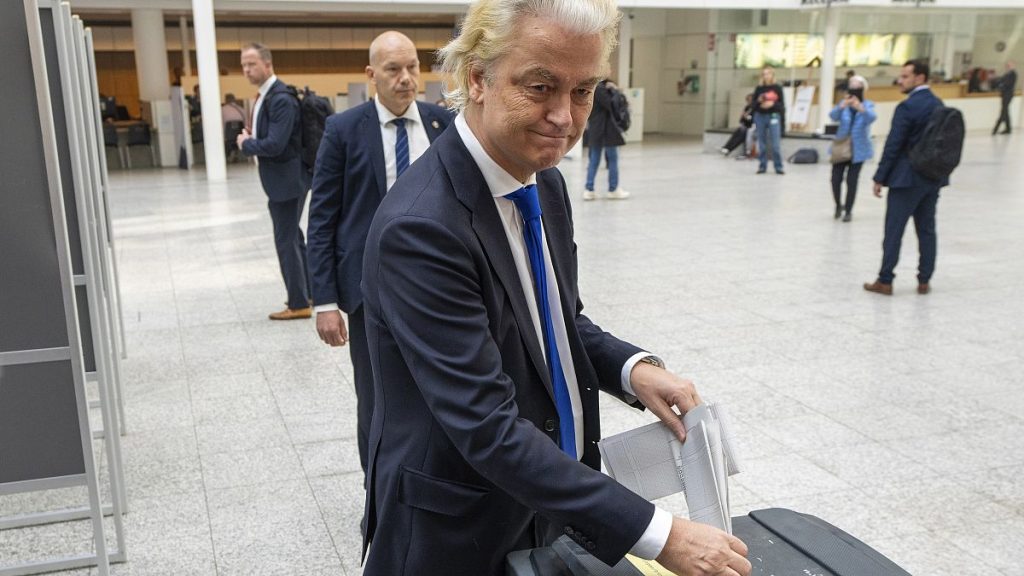The recent European Parliament elections in the Netherlands saw surprising results, with the pro-European parties performing well. The GreenLeft-Labour joint list is projected to win eight out of the 31 seats, while the radical right Freedom and Democracy Party is expected to win seven seats. Former First Vice President of the European Commission Frans Timmermans, who leads the GreenLeft-Labour alliance, emphasized the strong showing of pro-European parties in the election as a signal to the rest of Europe. Geert Wilders’ Party for Freedom and Democracy is projected to win seven seats, a significant increase from previous years.
Despite the success of pro-European parties in the election, Geert Wilders remains optimistic about the rise of right-wing parties across Europe. Wilders believes that parties like his are gaining popularity and hopes for this trend to continue. He emphasizes the importance of returning legislative powers to individual capitals and limiting the expansion of the European Union. Wilders has shifted his party’s stance from advocating for a Nexit, or a Dutch withdrawal from the EU, to wanting to change Europe from within. He aims to join the Identity and Democracy Group in Parliament, where he can work alongside other right-wing parties.
Sebastian Stoteler, the representative for the PVV in Brussels, is relatively unknown despite being elected. Stoteler has expressed strong views on Islam, referring to it as a totalitarian ideology similar to fascism and Nazism. The PVV, under Wilders’ leadership, is focused on creating change within the European Union by uniting right-wing parties from various countries. This approach, according to Wilders, is more effective in influencing policy and decisions at the EU level. The goal is to form a strong group of MEPs that can push for changes within the institution.
The turnout for the 2019 European Parliament elections in the Netherlands was the highest since 1989, with 47% of voters participating. This increase in voter turnout indicates a heightened interest in political participation among the Dutch population. Despite concerns about the potential for a sweeping victory by radical right parties, the results ultimately favored pro-European parties. The GreenLeft-Labour alliance’s success in winning seats highlights the country’s support for a more inclusive and cooperative approach to governance within the EU.
Geert Wilders, while disappointed by the election results, remains dedicated to his goal of challenging the status quo within the EU. He sees the rise of right-wing parties as part of a larger movement of awakening across Europe. Wilders’ commitment to changing Europe from within reflects a shift in strategy for the PVV, moving away from advocating for an exit from the EU towards seeking influence and reform from within the institution. The results of the election and the increased voter turnout demonstrate a complex political landscape in the Netherlands, where a variety of ideologies and viewpoints are represented.












